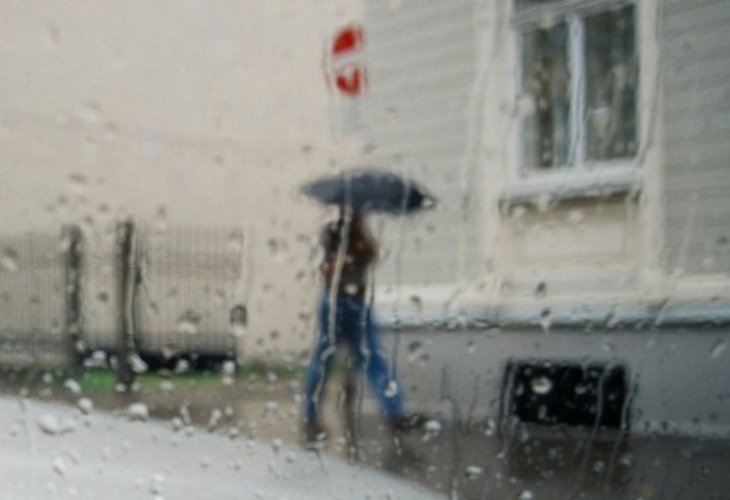Jewish Law
Winter Is Here: Halachic Questions for the Cold Season
Your guide to common winter halachot: prayer in the rain, umbrellas on Shabbat, and the deeper meaning of rainfall
 (Photo: shutterstock)
(Photo: shutterstock)As the days grow colder and wetter, new halachic (Jewish law) questions begin to come up. Can an elderly person use an umbrella on Shabbat? What is the spiritual meaning behind rain? When do we start saying special blessings for rain in the Amidah prayer? Let’s explore these questions with warmth and clarity.
Can an Elderly Person Use an Umbrella on Shabbat?
Someone asked: If an elderly man who is not in great health wants to walk to synagogue on Shabbat, can he use an umbrella? He can walk on his own, and there’s no fear he’ll fall but if he gets soaked, he might get sick, and at his age, that can be dangerous. There’s no concern that others will judge him, because nowadays, there are certain leniencies for older people, like using electric mobility scooters.
Still, the answer is clear: No, he may not use an umbrella on Shabbat. This is not about public opinion. It’s about asking ourselves honestly: What is Hashem’s will in this situation?
Carrying or opening an umbrella on Shabbat is considered a form of “building,” a forbidden activity according to halacha. So even if the goal is to attend synagogue, the mitzvah of going to pray does not override this prohibition. If the elderly man might become ill from walking in the rain, then Hashem does not want him to take that risk. In fact, he receives reward in Heaven for choosing to protect his health. It's considered as though he prayed with a minyan (prayer quorum), even though he couldn’t attend.
It’s a good idea for him to daven (pray) at the same time the congregation is praying, so his prayers are spiritually joined with theirs.
Where Does Rain Come From? The Spiritual and Scientific View
Another reader asked: The Talmud teaches that rain comes from the “upper heavens” and flows through the clouds. What does this mean, and how does science explain it?
This is a beautiful question. When our Sages (Chazal) spoke about the “upper waters,” they weren’t referring to physical water as we know it. In the spiritual realmsת according to the teachings of Kabbalahת everything in our world has a higher root in the heavens. Rain, too, is a reflection of a spiritual kindness that flows from above. These heavenly waters, though not physical, are what our Sages described as being filtered through the clouds before becoming raindrops in our world.
Still, our tradition holds that Torah always has both a simple and a deeper meaning. On the basic level, rain is part of the natural water cycle. Rabbi Zamir Cohen, for example, suggested that there may be frozen water in outer space that supports the simple understanding of the verse about the “firmament.” In science terms, this might be compared to the Earth’s atmosphere. But in the deeper, spiritual interpretationת accepted by most Torah scholarsת the “firmament” refers to something beyond the physical universe. It belongs to the world of holiness and divine kindness.
When Do We Start Saying the Prayer for Rain in the Amidah?
This is a practical question that comes up each year. In the Amidah prayer (also called the Shmoneh Esrei), we begin adding the words “Mashiv haruach u’morid hagashem” (He causes the wind to blow and the rain to fall) on Simchat Torah.
Later in the same prayer, when we ask for material blessings in the blessing Barech Aleinu, we start asking specifically for rain beginning from the 7th of Cheshvan (in Israel). In 2017, that fell on the evening of October 27th.
Final Thoughts
Winter might bring cold weather, but it also brings warmth in a different form like the warmth of Jewish wisdom. From knowing how to care for our bodies on Shabbat, to connecting the rain outside to the kindness of Heaven, every season has its spiritual beauty.
The answers in this article were shared by Rabbi Menashe Israel and Rabbi Binyamin Shmuel and were compiled from the Q&A section on the Hidabroot website.

